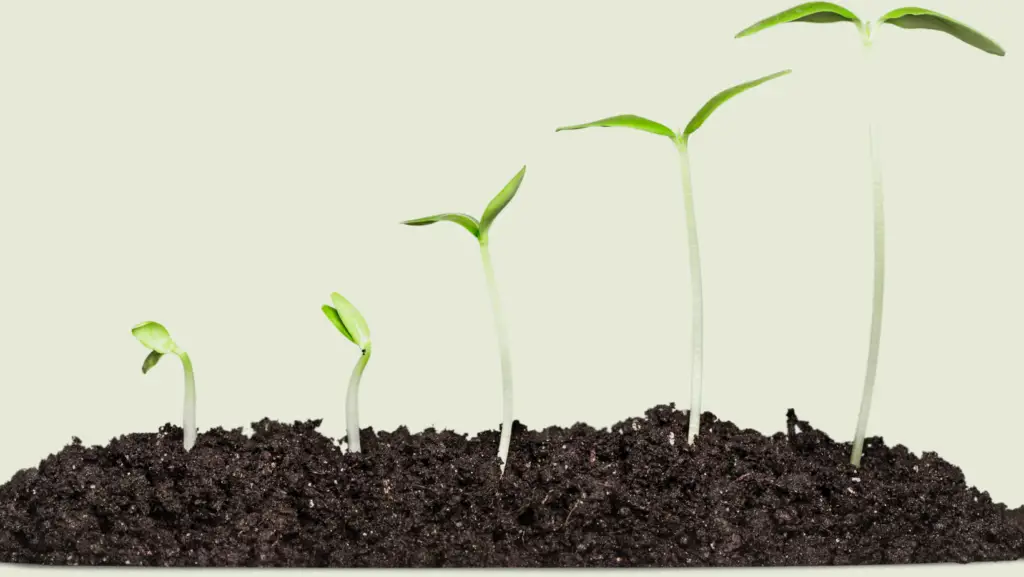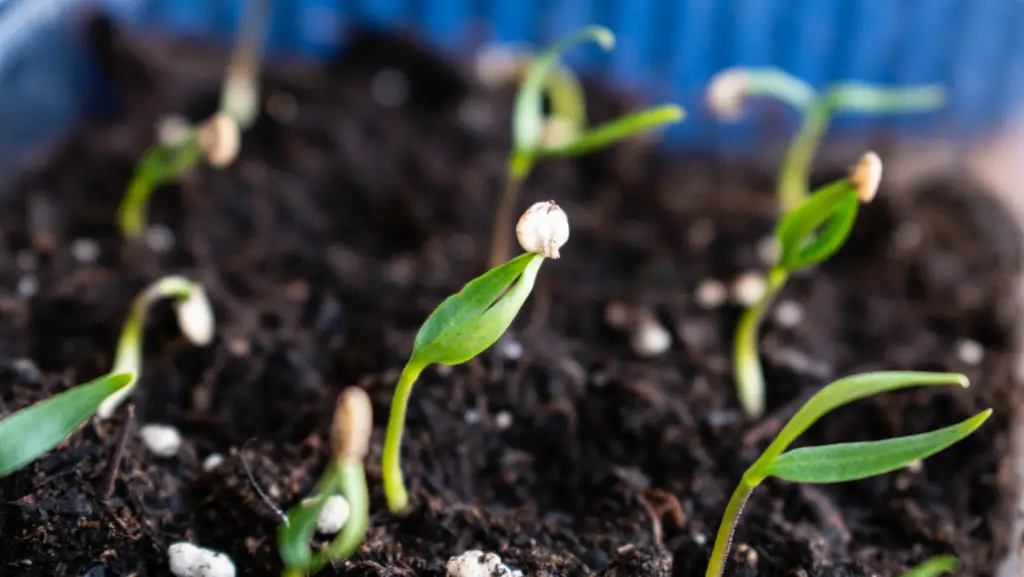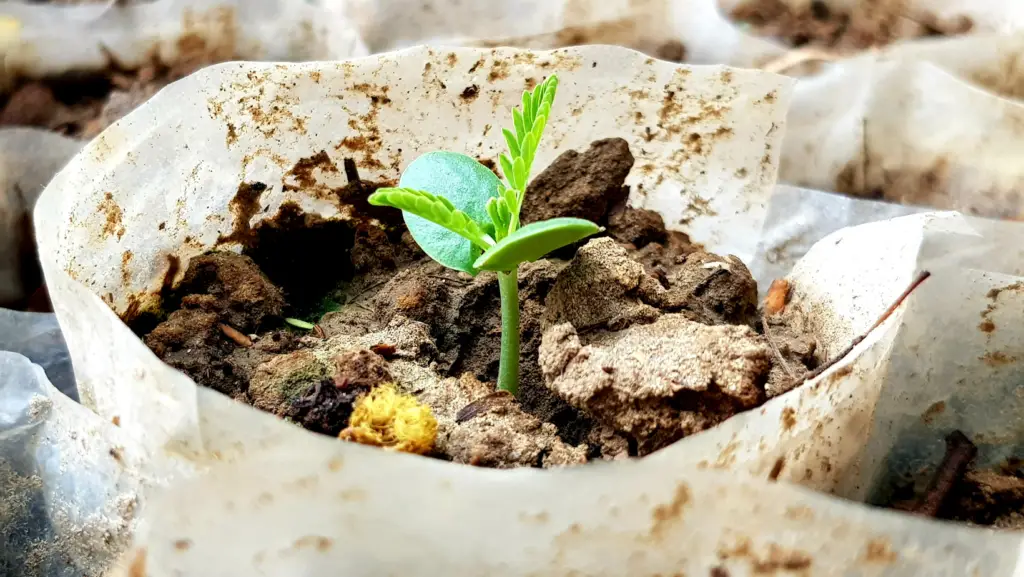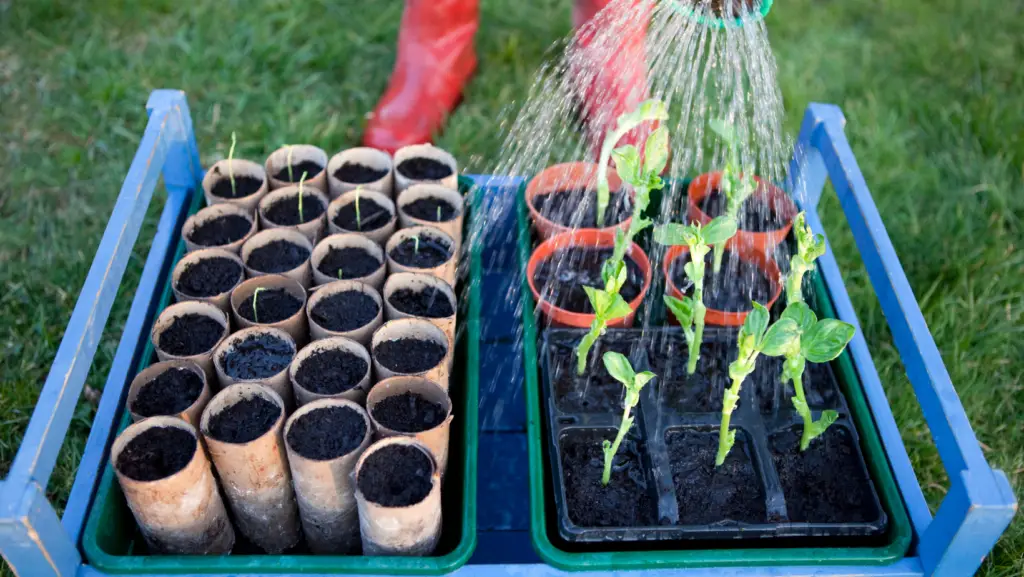
Are you a new gardener? Do you keep asking yourself how long do seeds take to sprout? If so, you’ll be surprised to know that there isn’t a definite answer to this question. It could be seven days or 20 days.
Whenever you talk to a seasoned gardener, you’ll often hear this answer ‘’it depends’’. This answer seems to fit accordingly to this article because seeds depend on many factors that could determine when they’ll sprout.
As a gardener, I know this could be frustrating. That’s why in this article, I’ll tell you about these defining factors that could encourage the seeds to sprout.
Continue reading and find out why your seeds aren’t sprouting and how to speed up this process:
What does germination mean?
Germination is a natural process that occurs whenever a seed sprouts. Thus, the plant begins to develop and form the rest of the plant.
How long does it take for seeds to germinate and grow?

The first thing you need to do when buying seeds is to search for the germination rate and the days it will take the plant to grow.
A seed will grow into a plant if germination was a success. But the times will vary according to the plant species you are growing.
For example, plants like tomatoes and lettuce could sprout in less than 10 days. On the other hand, peppers or carrots could take 15 days or more to sprout.
Each seed is unique, and each plant species is also unique. That’s why, as gardeners, we must adapt to the species we would like to grow and have an open window in terms of timeframes.
Additionally, there’s a difference between annuals and perennials. Annual plants are sown yearly; thus, these seeds will likely sprout in less than 14 days.
Whereas perennial plants usually survive for two years or more, and they could take a few weeks to a month to sprout.
Factors of seed germination time
There are many factors that will determine whether a seed will sprout or not. Remember, when trying to germinate seeds or grow healthy seedlings, environmental conditions are key.
Here are some of the most important factors you need to focus on when growing a plant:
Temperature
Soil temperature is one of the key players when determining how long for seeds to sprout in soil.
If the soil is warm, seeds will tend to germinate faster; on the contrary, if the soil is lightly cold, your seeds will take longer to germinate. If the soil is frozen, seeds are very unlikely to germinate.
Typically, seeds tend to germinate rapidly when the soil is warm because it’s ideal for them to grow.
The optimum soil temperature range would be between 65 to 85 degrees Fahrenheit for seeds to germinate. This range in temperature is warm enough to allow the seed to sprout.
However, cold hardy crops, such as lettuce, brassicas, radishes, peas, kale, and beets, will germinate when the soil is around 35 to 65 degrees Fahrenheit.
But soil temperature is not the only factor that could determine how fast your seed grows.
Soil

Seeds love good soil. And you can achieve this good soil by buying or making your own compost. Generally speaking, seeds love moist, loose, black soil.
This soil is usually filled with nutrients that will then feed your seeds. If you have compacted or clay soil you will need to amend it before you plant any seeds.
Finally, there are seed starting mixes that you can find in stores or make yourself, which allows to have the best soil conditions to plant seeds.
Water

Would you like to know a great tip that will save you time, effort, and energy when sprouting seeds? Soak them in water first!
Get a glass of water, put the seeds you are trying to germinate in it, and let it soak for 24 hours. Not only will your seeds absorb the water and begin a sprouting process, but the seeds that are no longer viable will being to float.
Scoop the floating seeds out because they will no longer develop a new plant. Focus on the seeds that are on the bottom of the glass!
You can then sow those seeds into the ground or trays. Make sure to water thoroughly after sowing into the soil. Even though these seeds have been pre-soaked, they will still need water to begin their growing process.
Light
If you want your seeds to sprout, they need light. Not just any light, but specifically the white and red-spectrum regions of the light spectrum. However, the specific light requirements for germination can vary greatly between different plant species.
To ensure successful germination, it is crucial to consult the recommended light conditions specified on seed packets or through relevant research before planting. This can include information on whether the specific seed requires full sun or shade exposure for optimal germination.
FAQ
Can you put seeds straight into the soil?
Yes, you can put seeds straight into the soil. A rule of thumb would be: if the seeds you are sowing are big, just sow them directly into the soil. Plants like zucchini, cucumbers, watermelons, corn, and chard can go straight into the soil.
Furthermore, some plants do not like to be transplanted, so it would be better if you sow them directly into the soil. Carrots, for instance, are famous for being one of the smallest seeds, yet, it’s always better to direct sow them.
How do you tell if a seed has germinated?
You can tell a seed has germinated when you see the seed has ‘broken’ the seed coat. In other words, you will see a thin hypocotyl that will start producing the plant’s roots. This hypocotyl resembles a thin thread and pops out of the seed. This will be the beginning of your future plant.
Why are my seeds taking so long to germinate?
Some seeds naturally take a long time to germinate. However, sometimes the seeds you are trying to plant are no longer viable. This means that you won’t be able to germinate them because they have lost their germination power.
What do I do if my seeds don’t sprout?
If your seeds don’t sprout then you will need to throw them away, unfortunately. You could compost them or if you have chickens, dogs, or even pigs, you could give them these seeds – surely they’ll enjoy them!
Conclusion
Every seed has a different germination time. Gardening means you need to get your hands dirty – and it’s all trial and error!
Some seeds will germinate faster than the rest, and others will take their time to sprout. As a gardener, the best thing to do is to keep your eyes open and offer your seeds the best possible conditions for them to grow.
Now that you know how long it takes for seeds to sprout in soil, make sure you plant the right number of seeds when you start your next planting!

Hi!
I am the guy behind Theyardable.com. I grew up on a homestead and I am here to share the knowledge I have and things I learn while living in the countryside.
